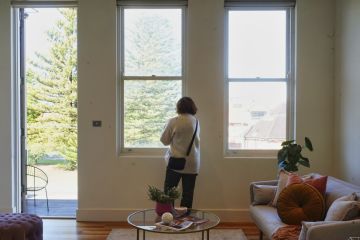Home breadmaking 101 with Baker Bleu founder Mike Russell
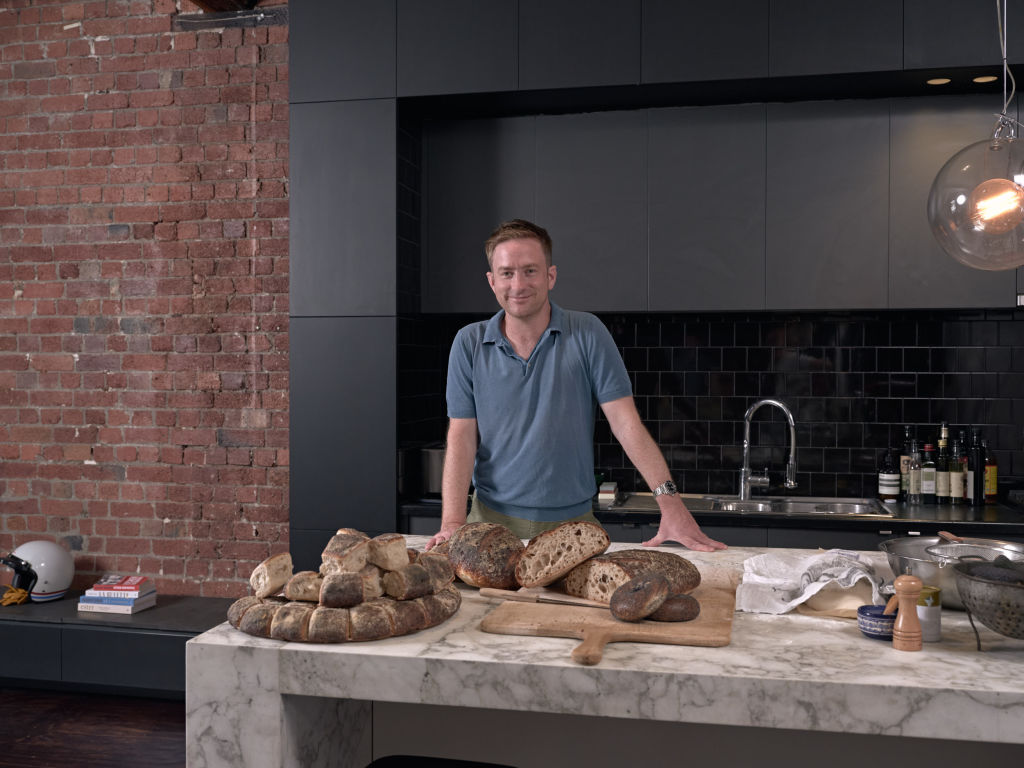
In the Venn diagram of life there are two circles: people who make bread and people who eat it. Mike Russell of Baker Bleu lives firmly in the breadmaker circle. I live in the little ellipse between the two spheres as a top-tier bread consumer who has twice attempted to make focaccia in a share-house kitchen, using Tupperware as a bowl.
Russell knew he never wanted to work the typical nine-to-five – instead he went looking for a vocation and found it in the kitchen. He fell in love with bread while working in the pastry section of Neil Perry’s Rockpool Bar & Grill, then spent the next few years moving back and forth between Sydney and Melbourne working at some of the best bakeries in each city: Baker D Chirico, Bourke Street Bakery and Iggy’s Down Under.
In December 2016, he opened Baker Bleu in Elsternwick with wife and business partner, Mia Russell. A couple of years later they moved to larger premises in Caulfield North, added a second Melbourne outlet at Hawksburn, and eventually expanded to Sydney at the behest of business partner and former boss, Neil Perry.
Now Russell has penned Baker Bleu: Bake It Till You Make It, a new cookbook that focuses on his “real-life” approach to home breadmaking. Which is where his circle and mine again intersect. Can a time-poor bread lover like myself – with very little storage space and a complete aversion to maths and science – make the leap into baking? On behalf of sourdough-curious readers everywhere, I sat down with Russell for a crash course in bread.
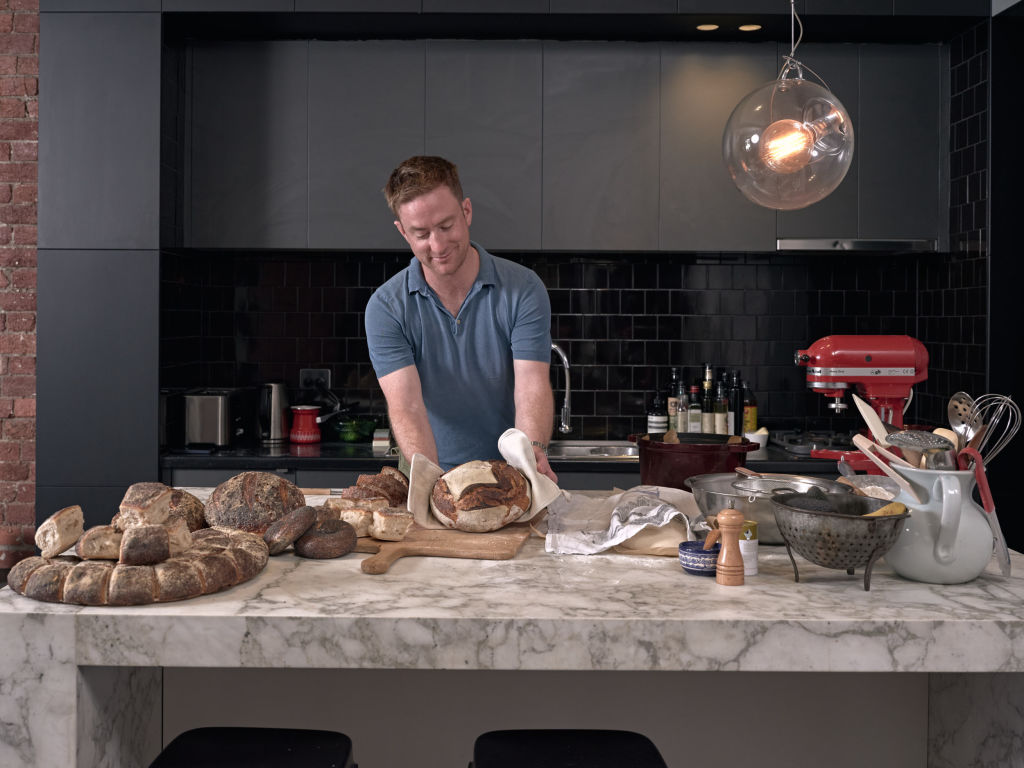
First question: did you do a lot of maths at school?
I was terrible at maths. I’ve improved a lot, but I was definitely not in an algebra class in school.
So it’s possible to get into breadmaking without being good at maths and science?
Yeah, 100 per cent. I think at a domestic level making bread is about touch and feel. If you can follow a recipe, it’s simple. Your scale is doing all the work and the rest is all sensory. You don’t need to be a science or maths whiz.
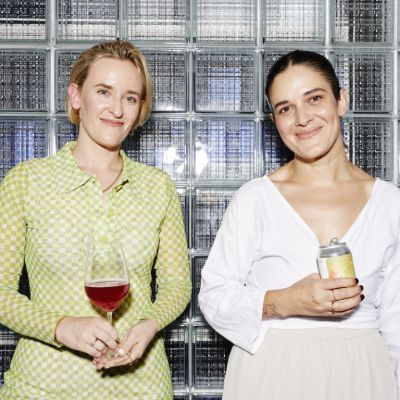 TINA’s Drinks: In search of simply the best non-alcoholic tipple
TINA’s Drinks: In search of simply the best non-alcoholic tipple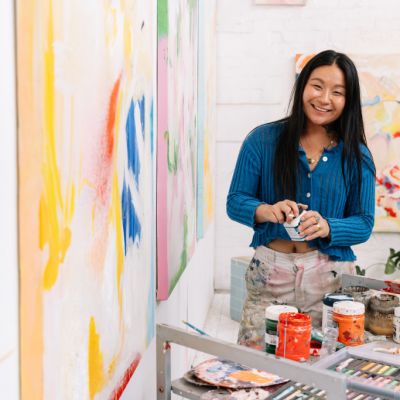 The butterfly effect: Marisa Mu is making big waves in the art world
The butterfly effect: Marisa Mu is making big waves in the art world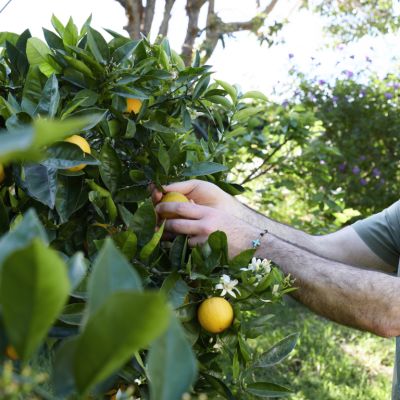 Joseph Abboud: From high school dropout to celebrated chef
Joseph Abboud: From high school dropout to celebrated chef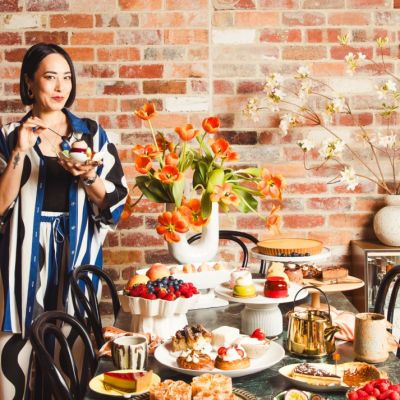 Pastries, trinkets, and handcrafted mugs – settle in for afternoon tea with ex-Masterchef judge Melissa Leong
Pastries, trinkets, and handcrafted mugs – settle in for afternoon tea with ex-Masterchef judge Melissa Leong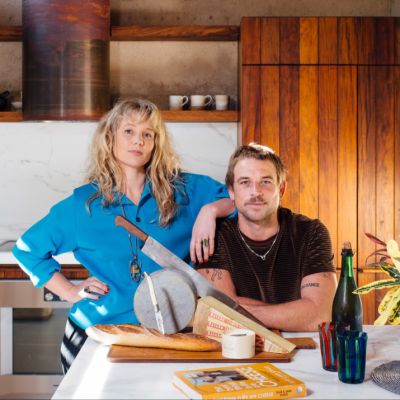 Aussie siblings Sam and Ellie Studd want to make cheese “fun, sexy and accessible”
Aussie siblings Sam and Ellie Studd want to make cheese “fun, sexy and accessible”
That gives me and the bread novices of the world a lot of hope. Thinking back to when you first started baking at home, were you producing bread every day?
Once I found a recipe that I could do at home, I was very into it, I started devouring books and I looked into other people’s journeys. Like the guy [whose recipe I was using] – I wanted to know everything I could about him: how he got into bread and where he lived and what he did.
So it’s a true passion?
One hundred per cent. I could work 17- or 18-hour shifts because I love the physical strain – which is actually a bit sick – but I loved the fact that from end to end I was mixing bread, and then I’d walk out the door and see all this beautiful bread which is going to be sold to customers. It’s a very rewarding process because you always have a result at the end. I mean, they always say “grumpy bakers”, but I think we’re generally pretty satisfied people.
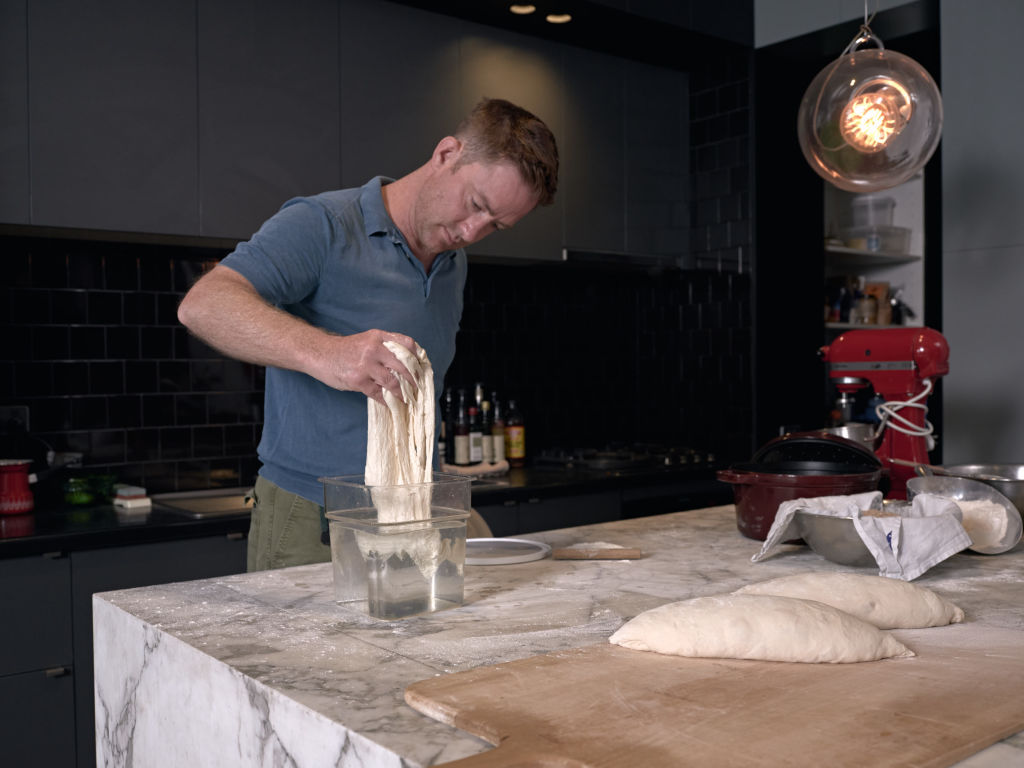
I’ve made focaccia twice and that’s the extent of my breadmaking experience. If I wanted to get into it properly, how much time would I need to devote to it? And how can you balance it with work and kids and life?
It can be easily adapted to suit your schedule even if you’re working a night shift or you’re doing an early morning. If you love to cook dinner and have a glass of wine, you could start your bread process at that point and then do something just before you pack the dishwasher. Then the next day you could have it on the table before friends come over for dinner.
Bread has three main ingredients – flour, salt and purified water. If I can splurge on just one of those, which will make the biggest difference to the end product?
The flour. A lot of people look for that tipo 00 flour, but I think the best thing is to go to a bulk food source store or a health food store and buy a kilo bag of Australian stone-ground flour.
And can I use tap water?
Absolutely. Run it through a water filter if you can, but otherwise tap water is fine.
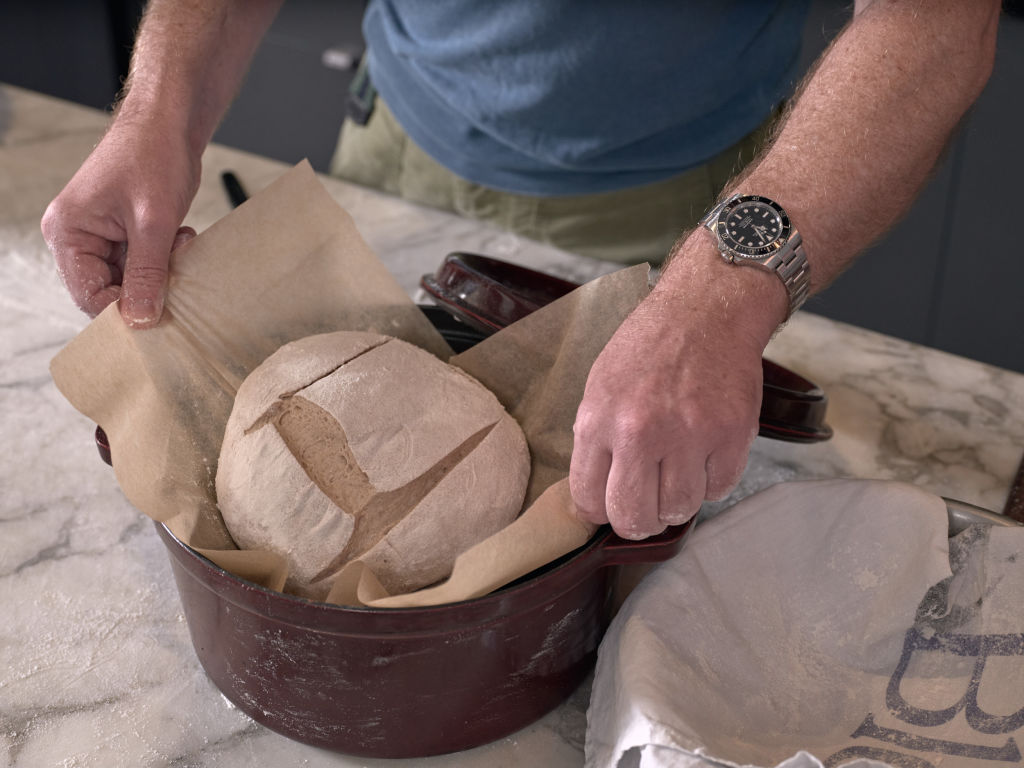
The Getting Started Toolkit in the book includes 30-odd items. For people with budget or storage concerns, what are the bare necessities for turning out a pretty good loaf?
The bare minimum is just something to bake your loaf in, like a casserole pot or Dutch oven … and you need some scales. Everything else can be switched out. The bowl can just be a tub, and if you don’t have a scraper, you could use a spatula. A thermometer is sort of important, but otherwise you can work on the fly with whatever you’ve got.
And for the people who are trying to wing it without a thermometer, how would you gauge lukewarm water?
I would describe it as tepid or just slightly warmer than room temp.
Tell me about your first sourdough starter.
We made it ourselves when we first moved to Melbourne from Sydney. We had one that I started in May 2016 and then by December we’d opened the bakery. With that starter, I just used the exact same process that’s in the book. I was making bread all throughout that winter – I even went to Europe for three months and took the starter with me.
How is travelling with a starter? If we’re worried about spooking it with slightly-too-hot water, how does it cope with altitude?
Oh, the altitude is fine! Your bags usually get frozen because of the altitude, which is good because you want to slow the fermentation down. You just do a feed before you head to the airport and then one when you land and you’re good to go – even if it’s 24 hours later.
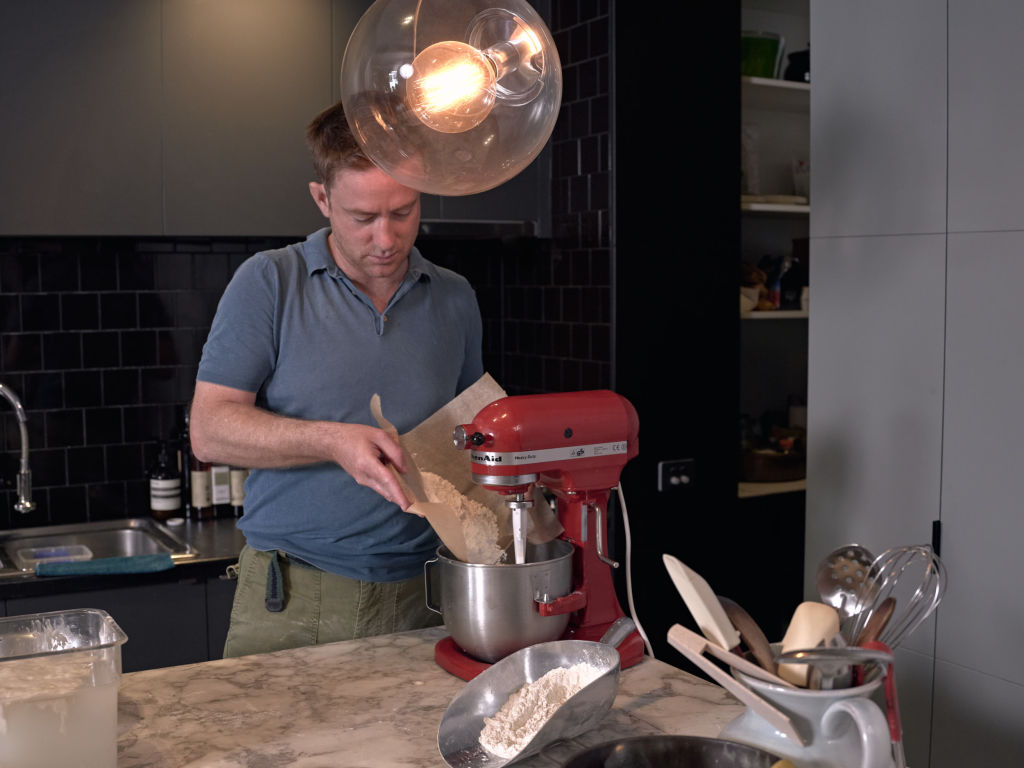
In the book you describe mixing the sourdough starter with your fingers because of the wild yeasts and bacteria underneath your fingernails. What do you say to people who might find that a bit icky?
This is going to sound weird, but we’re all pretty dirty, so when you’re feeding your starter by hand there are microbes and wild yeasts everywhere. But if you feed it with a sterilised piece of plastic, you’re just relying on the natural food that exists in the flour. Fermentation is a natural process and human beings aren’t sterilised organisms.
How would you suggest I keep my own starter alive and healthy in my apartment without creating a biohazard?
Every kitchen is different, every apartment and every house is different, so you’ll have to look for a comfortable place for your starter to live. In Melbourne, for example, where it’s less humid, maybe it’s on a kitchen bench in a corner or next to the fridge – somewhere it doesn’t get too cold.
What’s the biggest rookie error for novice bakers when it comes to the proofing process?
Baking it too early. You know, when you’re impatient you just want to put it in when it feels or looks like it’s good enough. You just want to get it over and done with. But patience is the key.
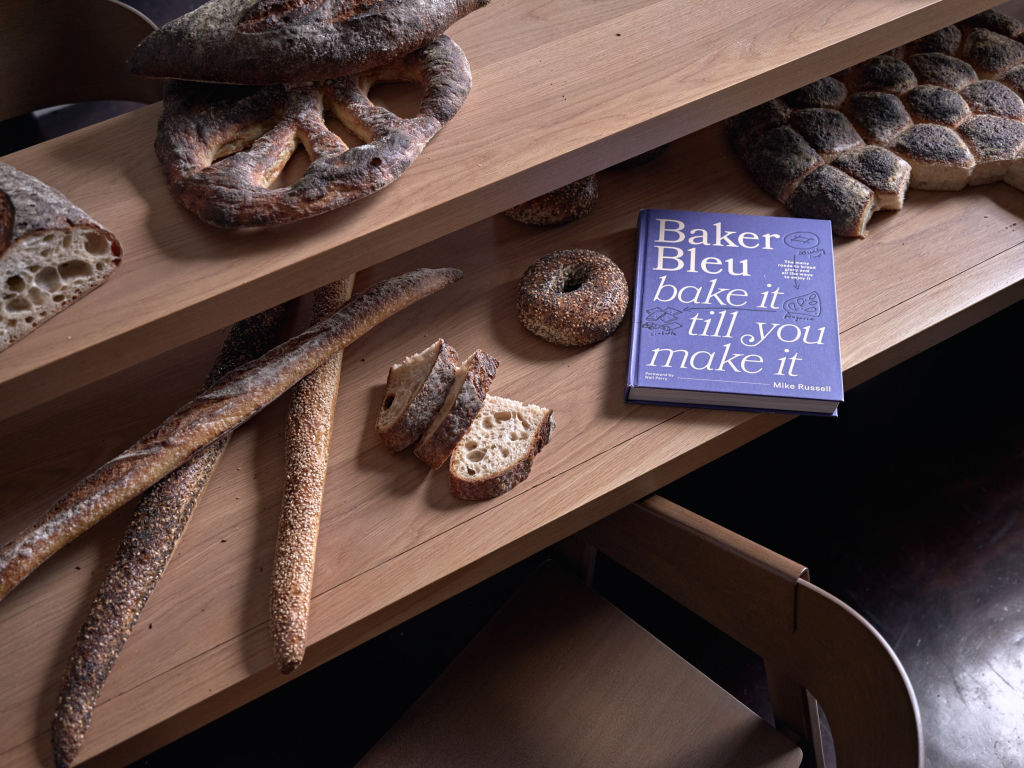
Sounds like breadmaking can be a form of meditation.
One hundred per cent. To me, patience is enjoying the process; meditation is just enjoying the stillness and doing nothing. Breadmaking is a singular process with a live product. Essentially, you’re working on a timeline that’s dictated by a product, not you. If something isn’t ready, then it’s out of your control.
So, the bread is in charge.
The bread is in charge and once you let go, breadmaking is a lot more relaxing.
Baker Bleu: Bake It Till You Make It by Mike Russell is published through Murdoch Books and available now for $49.99.
This article first appeared in Domain Review, in partnership with Broadsheet.
We recommend
We thought you might like
States
Capital Cities
Capital Cities - Rentals
Popular Areas
Allhomes
More

